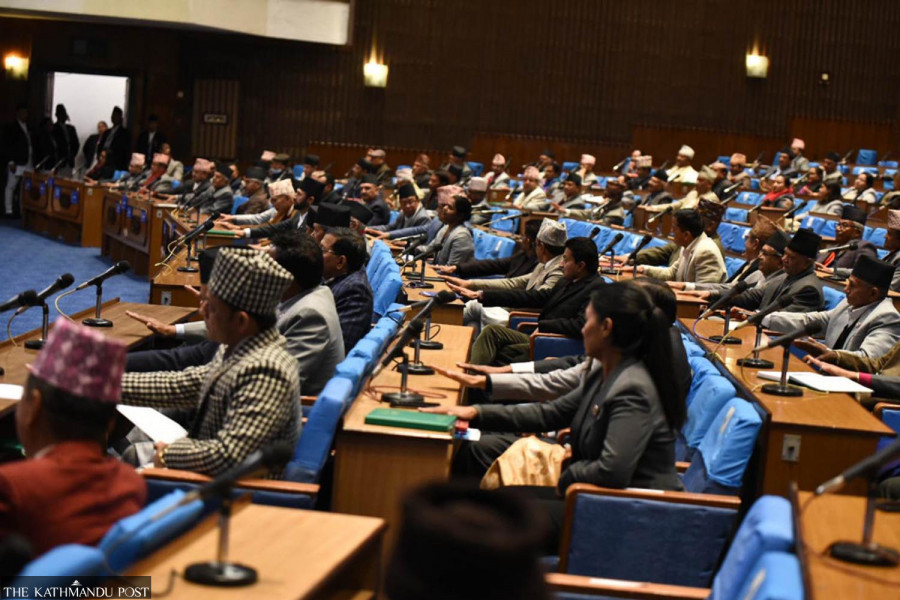Editorial
Short of sight
Most people’s representatives work for themselves rather than on behalf of their electorate.
Nepal is caught in a web of immature decision-making. Examples include classifying 87 types of information for up to three decades (then pulling back), denying No Objection Certificates to students joining diploma advanced diploma and language courses abroad (ditto), citizenship matters, reducing the subsidy on chemical fertilisers, and raising the price of petroleum products. The 10-party ruling government led by Maoist Centre’s Pushpa Kamal Dahal has had to withdraw several of its immature decisions in the past five months following vehement public criticism. But this is not a problem limited to the current government.
Every government in Nepal has over the years had to overturn countless decisions, but no lesson has been learned. These are partly the results of the country’s long history of political instability and coalition culture. With ministries divided among several parties with opposing ideologies, decision-making is often influenced by disparate interests and priorities of coalition partners. When a government lacks a solid foundation of like-minded and supportive peers, the pressure to maintain consensus among different parties can lead to contentious decisions and directives, which may not be in the best interests of the citizens. As these decisions often have to be made on the sly to hide the sinister motive, they lack transparency and accountability.
These are not healthy developments for a democracy. Such decisions not only hurt public interest but also infringe on their rights. For example, had the classification of information not been overturned, it would have curtailed the public’s Right to Information as enshrined by the Constitution. Similarly, hasty decisions over citizenship have often led to public outcry, highlighting the need for more inclusive approaches. This begs the question: How are the decisions made in Nepal, and do our politicians consider the implications of what they decide? Experts in governance reckon that most government decisions are randomly made without broad consultations. Even vital directives from a minister or prime minister are issued to government agencies without much study. Mature decision-making entails processing and analysing information and seeking suggestions. This is unfortunately not something that comes naturally to most of our politicians or top-level bureaucrats.
Moreover, decisions of the executive and legislature tend to be influenced by vested interests. For instance, the parliamentary committee debating banking regulations will often be dominated by those involved in the banking sector. Unscrupulous contractors have over the years sat on vital infrastructure projects for eternity thanks to those lobbying on their behalf in the Parliament and in the political leadership. There are legions of such cases of conflict of interest. Yet another problem is lack of institutional memory. Say, a minister does a sterling job in the short time she is in the government. But as soon as she is out of office, the next occupant of the ministry likes to start from scratch. Even if there is some institutional memory, he considers following it almost like a personal affront.
The problem again is that most people’s representatives work for themselves rather than on behalf of those they represent—and this is precisely why people have started actively searching for alternatives.




 13.12°C Kathmandu
13.12°C Kathmandu














